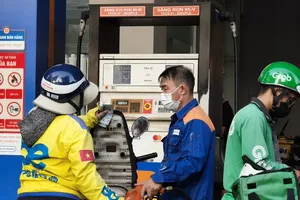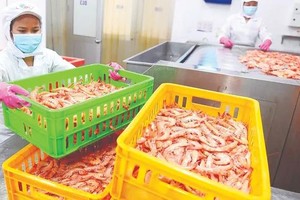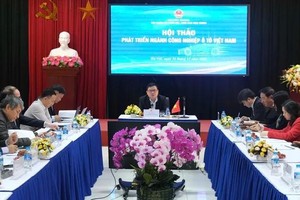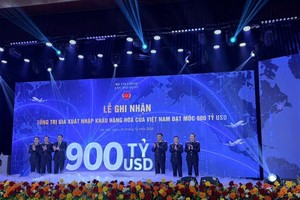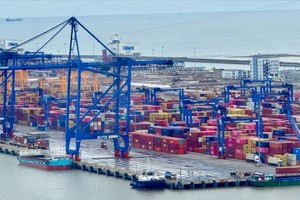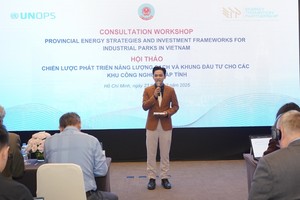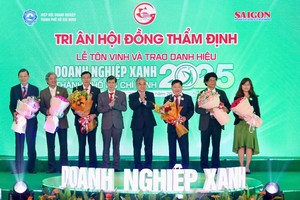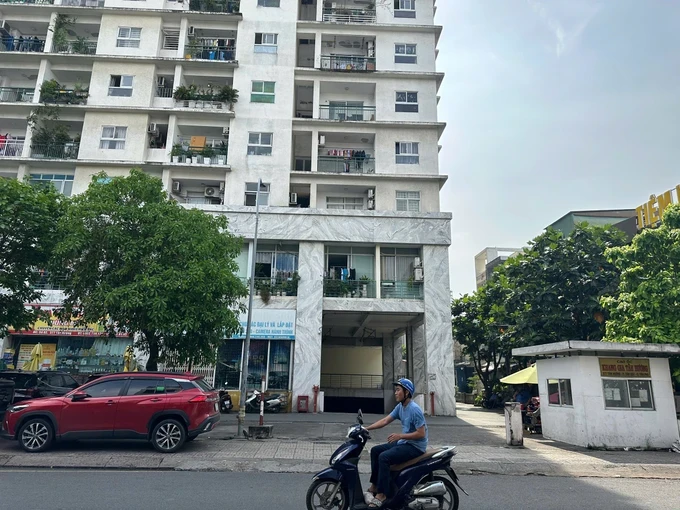
Ho Chi Minh City consistently aims to speed up the process of issuing pink books for housing and apartment developments. Recently, the HCMC People's Committee announced the formation of a working group tasked with addressing challenges associated with the issuance of pink books to organizations and individuals involved in commercial housing projects within the city.
According to experts, existing legal frameworks prove inadequate for resolving the issuance of pink books in cases involving complex legal entanglements, such as projects where the investor has mortgaged the property to a bank or projects implicated in criminal investigations. For instance, residents of projects developed by Khang Gia Real Estate Investment and Development Joint Stock Company remain unable to obtain pink books due to the intricate legal issues surrounding these developments.
In addition to other violations, a significant issue at the Khang Gia Go Vap and Khang Gia Tan Huong apartment complexes involves the developer, Khang Gia Company, mortgaging the project's land use right certificate (red book) to a bank. This mortgage remains unresolved. In 2020, residents discovered through a document sent by the Ho Chi Minh City Land Registration Office to Khang Gia Company and related entities that their apartment units were subject to this bank mortgage.
Specifically, the Department of Natural Resources and Environment issued a pink book to Khang Gia Company with an area of nearly 4,000 square meters for building apartments in April 2012. Soon, the company mortgaged the book to BIDV Bank, East Saigon and West Saigon branches in June of the same year.
The situation at Phu Thanh apartment building, developed by Construction Joint Stock Company 585, mirrors the experiences of residents in other projects, with significant delays in the issuance of pink books.
According to Head Thai Thanh Loi of the management board of Phu Thanh apartment building, the building has more than 800 apartments, put into use since 2010 and residents have paid the investor more than 95 percent of the apartment value. However, the company has mortgaged 219 apartments in 2010.
In June 2024, Viet A Bank's Ho Chi Minh City branch announced that it was initiating legal proceedings to foreclose on apartments mortgaged by the company. Additionally, during the same month, the local People's Committee convened a meeting involving the bank, the investor, and representatives of the residents to listen to resolutions.
At the meeting, the investor representative explained that the real estate market experienced a significant downturn in the 2010s, with high interest rates reaching 22-23 percent per year. This financial hardship impacted the company's operations and hindered their ability to service their bank loans. In 2022, the bank agreed to a revised payment plan, allowing the company to settle debts on a per-apartment basis, subsequently releasing the mortgage on each individual unit.
In relation to the project mortgage involving the investor, Chairman Le Hoang Chau of Ho Chi Minh City Real Estate Association (HoREA) highlighted an important proposal in 2014. HoREA recommended that the Ho Chi Minh City People's Committee recognize homebuyers as third parties in such transactions. It was suggested that authorities should implement measures to compel investors to release the project's mortgage, thereby facilitating the issuance of pink books to customers.
While the dispute between the investor and the bank primarily concerns the mortgaged property, which has already been sold to the public, such conflicts should be resolved directly between the two parties or through legal proceedings, without involving homebuyers. Despite this proposal, the issue remains inadequately addressed.
Regarding the problem of calculating land use fees, according to HoREA, the city should prioritize granting pink books first to people who have fully fulfilled their obligations under the home purchase contract. The financial obligations or responsibility to pay additional land use fees between the project investor and the State should also be separated for separate handling with specific sanctions. In addition, the city should direct the early completion of the land price determination and appraisal process of the Department of Natural Resources and Environment and the Department of Finance.
Lawyer Nguyen Van Hau, who serves as the Chairman of the Ho Chi Minh City Commercial Arbitration Association, explained that for projects entangled in criminal cases, it is essential to address the assets linked to the criminal matter prior to issuing a certificate to the buyer. For instance, if the director of a real estate firm is facing prosecution in a criminal case, any associated assets may be confiscated by the prosecuting authority for investigative purposes.
Once a judgment takes effect, the enforcement agency is obligated to execute the judgment and address any seized assets prior to releasing the property and issuing ownership certificates to the affected individuals. In practice, however, the process of lifting the seizure is fraught with challenges and demands coordinated efforts among key legal entities, including investigative agencies, the courts, and enforcement bodies, to ensure effective resolution.



